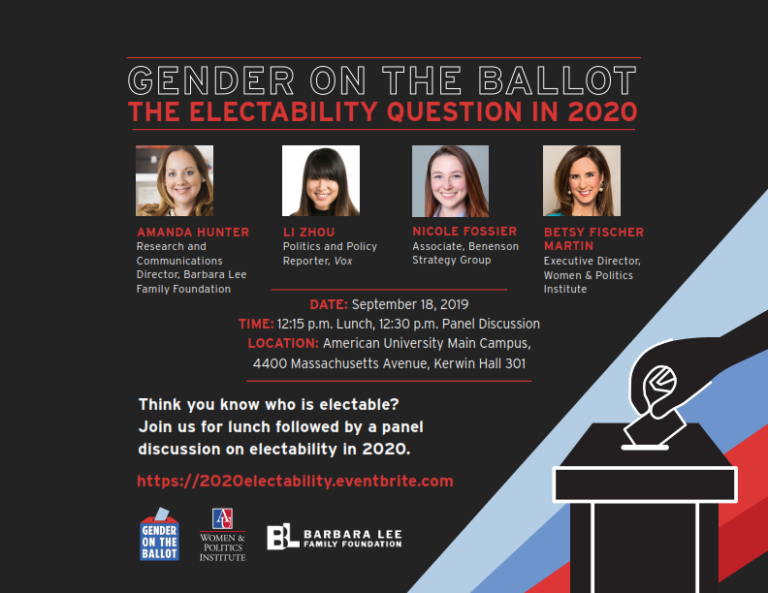Join us on September 18th, 2019 at American University or on Facebook Live for…
3 Takeaways from The Electability Question in 2020

In case you couldn’t make it, you can watch the full panel here:
Captions available under video settings
On September 18th at American University, experts gathered for a panel discussion about Gender on the Ballot’s latest research: “What Does Electability Mean to Voters?” Betsy Fischer Martin from American University’s Women & Politics Institute led a discussion amongst Li Zhou (Vox), Amanda Hunter (The Barbara Lee Family Foundation), and Nicole Fossier (Benenson Strategy Group).
Here are our top takeaways from our panelists:
1. “As you talk about the electability myth more, it very quickly gets debunked.” – Li Zhou
As Li said, “You don’t know who’s going to win the general election, until they win the general election.” Our panelists all agreed that the concept of electability is one that deserves further exploration, especially because electability means different things to different people. As one audience member pointed out, electability is a word often used but seldom defined. Perhaps because, as Li put it, “Electability as a concept is like nailing Jell-O to the wall. It’s slippery.”
2. “Most people think of themselves as ‘the average American.'” – Nicole Fossier
While breaking down our electability research, Nicole emphasized that having a deep understanding of the challenges average Americans face is the single biggest indicator of electability to voters:
When asked by an audience member about the meaning of “average American,” Nicole explained that this was a phrase most people associate with themselves, whether or not they fit into the mold of what others think of as “average.” As Betsy pointed out, the phrase “average American” means “people like me” to most.

3. “Men only have to fill one gender stereotype, women have to fill both when they run for office.” – Amanda Hunter
Amanda explained the double-standard women face when running for office, particularly executive office: balancing showing the strength of a man with their feminine side. Voters expect to see both from women candidates. We know that confidence is especially important for women candidates and that mothers running face heightened scrutiny, but needing to juggle and somehow bring together often conflicting gender stereotypes is a struggle that defines many of the challenges women face on the campaign trail.







